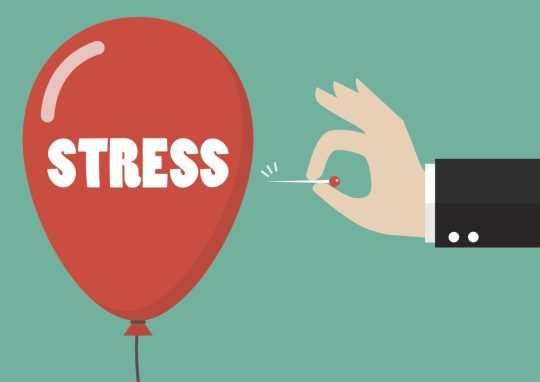#have a healthy mindful diet and realistic goals
Text

#too true#yes ma'am this helps#you think you don't need a reminder but then you actually do#it also fucks you up academically because you can't think when you go from having a normal weight to being extremely underweight in months#don't do it#have a healthy mindful diet and realistic goals#ed recovery#purposefully shutting out your friends who are trying to help you is no solution either#for all that 'they don't understand' they do love you#and letting them in helps#it helped mee#it's funny mine wasn't even about weight#brain is so stupid sometimes#anything can escalate#academia will save you because you might be ok with dying but are you ok with getting <80% on a test#no#time to wake up#lol#when you feel like fainting all the damn time you forget that it's not normal#it is unnoticeable not because it is not uncomfortable but because you are used to the discomfort#a single brain fog clearing moment can do wonders#just important to hold that awareness and do something about it#and break away from old patterns#which i am doing and i will manage#*hold on to#well
4 notes
·
View notes
Text

Health and Fitness: Tips and Benefits
Health and fitness are two interrelated concepts that affect our well-being and quality of life. Being healthy means having a good physical and mental condition, free from diseases and disorders. Being fit means having the ability to perform physical activities with ease, strength, and endurance. Both health and fitness can be improved by following some simple tips and enjoying some benefits.
Tips for Health and Fitness
One of the most important tips for health and fitness is to exercise daily for at least an hour. Exercise can help you burn calories, strengthen your muscles, improve your cardiovascular system, and boost your mood. You can choose any type of exercise that suits your preferences and goals, such as walking, running, cycling, swimming, dancing, or lifting weights. The key is to be consistent and challenge yourself gradually.
Another tip for health and fitness is to eat the right foods and portion each meal. Eating a balanced diet that includes fruits, vegetables, whole grains, lean proteins, healthy fats, and water can provide you with the nutrients you need to function properly and prevent diseases. You should also avoid or limit foods that are high in sugar, salt, saturated fat, and processed ingredients. Additionally, you should control your portion sizes and avoid overeating or skipping meals.
A third tip for health and fitness is to keep track of calories and food intake per day. Knowing how many calories you consume, and burn can help you balance your energy intake and expenditure. This can help you maintain a healthy weight or lose weight if needed. You can use a food diary, an app, or a website to record what you eat and drink every day. You can also use a calorie calculator to estimate how many calories you need based on your age, gender, height, weight, and activity level.
A fourth tip for health and fitness is to be sure to get enough sleep. Sleep is essential for your body and mind to recover from the day’s activities and prepare for the next one. Sleep can also affect your appetite, metabolism, immune system, mood, memory, and concentration. You should aim to get at least seven to nine hours of quality sleep every night. To improve your sleep hygiene, you should follow a regular sleep schedule, avoid caffeine, alcohol, nicotine, and screens before bed, create a comfortable and dark sleeping environment, and relax before sleeping.
A fifth tip for health and fitness is to stay motivated. Motivation is the driving force that keeps you going despite the challenges and obstacles you may face. To stay motivated, you should set realistic and specific goals, track your progress, celebrate your achievements, reward yourself, seek support from others, join a group or a class, find a workout buddy, or hire a personal trainer. You should also remind yourself of the reasons why you want to be healthy and fit.
Benefits of Health and Fitness
Health and fitness have many benefits for your physical and mental well-being. Some of the benefits are:
Reduced risk of chronic diseases: Being healthy and fit can lower your chances of developing conditions such as heart disease, stroke, diabetes, cancer, osteoporosis, arthritis, and obesity.
Improved balance and coordination: Being fit can enhance your ability to maintain your posture, move gracefully, avoid falls and injuries.
Increased energy levels: Being healthy can boost your metabolism and provide you with more fuel to perform your daily tasks.
Enhanced mood: Being fit can release endorphins in your brain that make you feel happy. Being healthy can also reduce stress hormones that cause anxiety.
Better self-esteem: Being healthy and fit can improve your appearance, confidence, and self-respect.
Conclusion
Health and fitness are important aspects of our lives that we should not neglect. By following some simple tips such as exercising daily, eating right, tracking calories, getting enough sleep, and staying motivated, we can improve our health and fitness levels. By doing so, we can enjoy many benefits such as reduced risk of chronic diseases, improved balance and coordination, increased energy levels, enhanced mood, and better self-esteem. Health and fitness are not only good for us but also for those around us who care about us. So, let’s start today!
#health & fitness#health and wellness#health#nutrition#weight loss#diet#fitness#healthy living#exercise#healthy eating#healthy lifestyle#healthy food#healthy diet#wellness#health tips#healthcare#prevention#health is wealth
54 notes
·
View notes
Text
Healthy Habits: Your Key to a Vibrant Life
Living a healthy lifestyle is not just about following a strict diet or hitting the gym every day. It's about cultivating habits that nourish your body, mind, and soul. By incorporating simple yet effective healthy lifestyle habits into your daily routine, you can enhance your overall well-being and enjoy a vibrant life.

1. Importance of Healthy Lifestyle Habits
Leading a healthy lifestyle is essential for overall well-being. Healthy habits not only improve physical health but also contribute to mental and emotional wellness. By making small changes to your daily routine, you can experience significant improvements in various aspects of your life.
2. Balanced Nutrition
Eating a balanced diet rich in fruits, vegetables, lean proteins, and whole grains provides your body with essential nutrients to function optimally. Focus on incorporating a variety of colorful foods into your meals to ensure you're getting a wide range of vitamins and minerals.
3. Regular Exercise
Physical activity is crucial for maintaining a healthy weight, strengthening muscles and bones, and reducing the risk of chronic diseases. Find activities you enjoy, whether it's walking, jogging, swimming, or dancing, and aim to get at least 30 minutes of exercise most days of the week.
4. Prioritizing Sleep
Quality sleep is essential for overall health and well-being. Aim for 7-9 hours of uninterrupted sleep each night to allow your body and mind to rest and recharge. Establish a relaxing bedtime routine and create a comfortable sleep environment to promote restful sleep.
5. Stress Management
Chronic stress can have detrimental effects on both physical and mental health. Incorporate stress-relieving activities into your daily routine, such as meditation, deep breathing exercises, yoga, or spending time in nature, to promote relaxation and reduce stress levels.
6. Hydration
Staying hydrated is essential for supporting bodily functions, maintaining energy levels, and promoting healthy skin. Aim to drink at least 8 glasses of water per day, and more if you're physically active or in hot weather conditions.
7. Mindful Eating
Practice mindful eating by paying attention to your body's hunger and fullness cues, eating slowly, and savoring each bite. Avoid distractions such as screens or multitasking while eating to fully enjoy your meals and prevent overeating.
8. Social Connections
Maintaining strong social connections is vital for emotional well-being and overall happiness. Make time for meaningful interactions with friends and loved ones, whether it's through face-to-face conversations, phone calls, or virtual gatherings.
9. Time Management
Effective time management allows you to prioritize tasks, reduce stress, and make time for activities that nourish your body and soul. Set realistic goals, create a schedule, and learn to delegate tasks to maximize productivity and achieve a healthy work-life balance.
10. Personal Development
Invest in personal development by setting goals, learning new skills, and challenging yourself to grow and evolve. Whether it's through reading books, taking courses, or pursuing hobbies, continuous learning and self-improvement are essential for personal fulfillment.
Change your habits, change your life. It's never too late to start. visit here
#selfcare#selflove#self improvement#self love#self care#hobbies#self healing#habits#healthy#fitness#morning routine#girlblogging#girl blogger#girlblog#pinklipgloss777#pink pilates princess#pink#being the best version of yourself#girl journal#it girl#dream girl#coquette#hyper feminine#motivation#my diary#pink aesthetic#clean girl#healthy habits#dream life#girl blogging
7 notes
·
View notes
Text
The Pragmatic Witch's tips on building self-esteem and self-worth
There's plenty of tools you can use for building self-esteem and self-worth. While you use these practices, you can use Sunstone and Rhodonite for self-soothing and ease of mind.
Let's elaborate on insights with a cognitive-behavioral, pragmatic, and authentic approach to improving self-esteem and self-worth:
Positive Self-Talk: Start with self-awareness about your self-talk. Many people have negative thought patterns. Challenge these thoughts, question their validity, and replace them with positive, empowering self-talk.
Self-Compassion: Treat yourself with kindness and understanding, just as you would a friend in a similar situation. Self-compassion involves recognizing that everyone makes mistakes and faces challenges.
Set Realistic Goals: Create achievable, realistic goals for yourself. This can help build a sense of accomplishment. Each goal achieved adds to your self-esteem.
Self-Reflection: Take time to reflect on your experiences, especially when something doesn't go as planned. What can you learn from these experiences? How can you grow from them?
Mindfulness and Meditation: Incorporate mindfulness and meditation into your daily routine. These practices can help you stay grounded, reduce anxiety, and improve self-awareness.
Building Competence: One of the best ways to boost self-esteem is by building competence in various areas of life. This involves learning new skills, improving existing ones, and gaining a sense of mastery.
Seek Support: Don't hesitate to seek support from friends, family, or a therapist. Sometimes, discussing your feelings and experiences with someone can provide valuable insights and emotional support.
Resilience: Learn to bounce back from setbacks. This involves developing emotional resilience and adaptability when facing challenges.
Journaling: Keep a journal to track your thoughts, feelings, and progress. Writing can be therapeutic and help you identify patterns or triggers for low self-esteem.
Express Gratitude: Practice gratitude by acknowledging the positive aspects of your life. This can help shift your focus from what you lack to what you have.
Take Care of Your Physical Health: Regular exercise, a balanced diet, and adequate sleep can have a profound impact on your self-esteem. A healthy body can contribute to a healthy mind.
Embrace Imperfection: Accept that perfection is an unrealistic standard. It's okay to make mistakes, and no one is flawless. It's our imperfections that make us unique.
Avoid Social Comparisons: Constantly comparing yourself to others can undermine your self-worth. Focus on your own journey and personal growth.
Personal Values: Identify your core values and use them as a compass to guide your actions and decisions. Living in alignment with your values can boost your self-esteem.
Celebrate Achievements: When you achieve a goal, no matter how small, celebrate it. Recognize your efforts and the progress you've made.
By following these cognitive-behavioral and pragmatic strategies while incorporating your personal touch of authenticity, you can work toward building and maintaining healthy self-esteem and self-worth. These practices don't rely on mystical or magical elements but are grounded in psychological well-being and self-improvement. Is there a specific aspect you'd like to delve deeper into, or do you have any questions regarding these insights?
#witchblr#witchcraft#witches of tumblr#spiritual growth#self care#psychology#self awareness#crystals#healing
13 notes
·
View notes
Text
🍁Welcome to Fall/Autumn🍁 | Part 2

We've all heard of seasonal depression, but did you know it is a real medical condition? The Cleveland Clinic states, "Seasonal depression, also called seasonal affective disorder (SAD), is a type of depression. It’s triggered by the change of seasons and most commonly begins in late fall. Symptoms include feelings of sadness, lack of energy, loss of interest in usual activities, oversleeping, and weight gain." Preparing for fall to prevent or alleviate seasonal depression, also known as Seasonal Affective Disorder (SAD), involves proactive steps to maintain your mental and emotional well-being as the days get shorter and the weather becomes colder.
Here are some strategies to help you prepare for fall and mitigate the symptoms of SAD:
Light Therapy: Consider investing in a light therapy box, also known as a lightbox. These devices mimic natural sunlight and can help alleviate the symptoms of SAD. Use the lightbox in the morning for about 20-30 minutes to regulate your circadian rhythm and boost your mood.
Maintain a Regular Schedule: Stick to a consistent daily routine, including regular wake-up and sleep times. This can help regulate your body's internal clock and improve your mood.
Get Outside: Make an effort to spend time outdoors, even on cloudy days. Exposure to natural light, even when it's overcast, can be beneficial. Take short walks during daylight hours or eat lunch outside if possible.
Exercise Regularly: Engaging in regular physical activity has been shown to be effective in combating depression. Find an indoor or outdoor exercise routine that you enjoy, such as yoga, dancing, or jogging.
Healthy Eating: Maintain a balanced diet rich in fruits, vegetables, whole grains, and lean proteins. Consider adding foods high in omega-3 fatty acids, like salmon or flaxseeds, which may have mood-boosting benefits.
Stay Social: Isolation can worsen symptoms of depression. Stay connected with friends and loved ones, even if it means meeting virtually. Plan social activities or join clubs or groups that align with your interests.
Mindfulness and Meditation: Practice mindfulness or meditation techniques to reduce stress and increase self-awareness. Mindfulness can help you stay present and manage negative thought patterns.
Set Realistic Goals: Break your tasks and goals into smaller, manageable steps. Celebrate your achievements along the way to maintain a sense of accomplishment.
Therapy and Support: Consider therapy, such as cognitive-behavioral therapy (CBT), which has been shown to be effective in treating SAD. A therapist can help you develop coping strategies and provide support during difficult times.
Medication: If your symptoms are severe or do not improve with other interventions, consult a healthcare professional about the possibility of medication to manage SAD symptoms.
Plan Fun Activities: Make a list of enjoyable fall activities and events you can look forward to, such as apple picking, pumpkin carving, or attending fall festivals.
Create a Cozy Environment: Make your living space warm and inviting. Decorate with soft blankets, warm colors, and items that make you feel comfortable and cozy.
Monitor Your Mood: Keep a mood journal to track your feelings and identify patterns. This can help you recognize when your symptoms worsen and when you might need extra support.
Stay Informed: Educate yourself about SAD and its symptoms. Knowing what to expect can help you take proactive steps to manage your mental health.
Consult a Healthcare Professional: If you suspect you have SAD or if your symptoms worsen, seek professional help. A healthcare provider can assess your condition and recommend appropriate treatment options.
Remember that everyone's experience with SAD is different, and what works for one person may not work for another. It's important to tailor your self-care and treatment plan to your individual needs. Don't hesitate to reach out for support from healthcare professionals or mental health experts if you're struggling with seasonal depression.
#fall aesthetic#autumn aesthetic#cozy autumn#cozy fall#cozy aesthetic#cozy vibes#spooky aesthetic#spooky season#halloween aesthetic#halloween#pumpkin season#naturecore#spooky#halloween moodboard#fall#autumn#fall moodboard#autumn moodboard#seasonal affective disorder#depression#mental health#mental health awareness#self help
16 notes
·
View notes
Text
The Impact of Psychological Health on Weight Loss Diet Success

تأثير الصحة النفسية على نجاح النظام الغذائي لإنقاص الوزن
وإليك نظرة عامة:
Understanding the Connection Between Psychological Health and Weight Loss
The Role of Stress and Emotional Well-being in Dieting Success
Overcoming Psychological Barriers to Sustainable Weight Loss
Mindful Eating and Its Impact on Psychological Health and Weight Loss
The Influence of Self-esteem and Body Image on Diet Success
The Power of Positive Thinking in Achieving Weight Loss Goals
Addressing Emotional Eating and Stress-induced Food Cravings
Coping Strategies for Dealing with Emotional Challenges During Weight Loss Journey
Seeking Professional Help: The Importance of Mental Health Support in Weight Management
Incorporating Mind-Body Practices for Holistic Wellness and Successful Weight Loss
Understanding the Connection Between Psychological Health and Weight Loss
I believe that psychological health plays a crucial role in the success of weight loss diets. Here are some key points to consider:
Emotional Eating: Emotional well-being can impact eating habits. Stress, anxiety, or depression can lead to emotional eating, where food is used as a coping mechanism.
Motivation and Discipline: A positive mindset and strong mental health are vital for staying motivated and disciplined throughout a weight loss journey.
Self-image: How we perceive ourselves can affect our weight loss efforts. Positive self-image is linked to better adherence to healthy habits.
Stress Management: Effective stress management techniques can prevent emotional eating and promote healthier choices.
Support System: Surrounding yourself with a supportive network can enhance psychological well-being and increase weight loss success.
Understanding and addressing the connection between psychological health and weight loss is essential for achieving sustainable results.
The Role of Stress and Emotional Well-being in Dieting Success
I believe that managing stress is crucial for successful weight loss. When we are stressed, our bodies release cortisol, a hormone that can lead to weight gain, especially around the midsection. Stress can also trigger emotional eating, causing us to reach for comfort foods high in sugar and fat.
To improve emotional well-being while dieting, I suggest practicing mindfulness techniques such as deep breathing, meditation, or yoga. These activities can help reduce stress levels and prevent emotional eating episodes. Additionally, seeking support from a counselor or therapist can be beneficial in addressing underlying emotional issues that may contribute to unhealthy eating habits.
Overall, taking care of our emotional health is just as important as monitoring our food intake when it comes to achieving successful weight loss.
Overcoming Psychological Barriers to Sustainable Weight Loss
I believe that addressing psychological barriers is crucial for achieving long-term success in weight loss. To overcome these barriers, I focus on the following strategies:
Identifying Triggers: I pinpoint situations or emotions that lead to unhealthy eating habits.
Building Resilience: I work on developing coping mechanisms to deal with stress or negative emotions without turning to food.
Setting Realistic Goals: I set achievable targets to prevent feelings of failure that may hinder progress.
Practicing Mindfulness: I cultivate mindfulness to foster better awareness of my eating behaviors and emotions.
By actively working on these aspects, I can overcome psychological barriers and maintain sustainable weight loss successfully.
Mindful Eating and Its Impact on Psychological Health and Weight Loss
I have found that practicing mindful eating can have a significant impact on both psychological health and weight loss. When I am more mindful of my eating habits, I tend to regulate my emotions better and reduce stress levels. This, in turn, helps me make healthier food choices and control my portions. By focusing on the present moment and being aware of my hunger cues, I can prevent overeating and mindless snacking.
Incorporating mindfulness into my eating routine has also improved my relationship with food and my body. I no longer view certain foods as "good" or "bad," and instead, I savor each bite and appreciate the nourishment it provides. This shift in mindset has led to a more sustainable approach to weight loss, as I am more likely to stick to a balanced and nutritious diet.
The Influence of Self-esteem and Body Image on Diet Success
I firmly believe that self-esteem and body image play a significant role in the success of a weight loss diet. When individuals have high self-esteem and a positive body image, they are more likely to stick to their diet plan and make healthier choices. On the contrary, those with low self-esteem may struggle with motivation and may give in to unhealthy eating habits more easily. Improving self-esteem and body image through positive affirmations, self-care practices, and seeking support from loved ones can boost long-term diet success. It is crucial to address these psychological factors alongside dietary changes for sustainable weight loss.
The Power of Positive Thinking in Achieving Weight Loss Goals
I believe that adopting a positive mindset is crucial when it comes to achieving weight loss goals.
Positive thinking can help me stay motivated and focused on my journey to a healthier lifestyle.
Reminding myself of my progress and celebrating small victories can reinforce positive thinking.
Visualizing my end goal and believing in my ability to reach it can significantly impact my weight loss success.
Surrounding myself with supportive and encouraging people can also contribute to maintaining a positive outlook throughout my weight loss journey.
Addressing Emotional Eating and Stress-induced Food Cravings
I need to recognize triggers that lead to emotional eating and stress-induced food cravings. These triggers can include emotions like sadness, loneliness, or anxiety. By identifying these triggers, I can develop healthier coping mechanisms to deal with emotions instead of turning to food. Engaging in stress-reducing activities such as meditation, exercise, or deep breathing can be helpful in managing stress levels and reducing the urge to overeat. It's essential to build a support system to discuss emotions and stressors, preventing them from manifesting in unhealthy eating habits.
Coping Strategies for Dealing with Emotional Challenges During Weight Loss Journey
I have compiled some coping strategies that have helped me navigate emotional challenges during my weight loss journey:
Seek Support: Surround yourself with a supportive network of friends, family, or a therapist to lean on when times get tough.
Practice Self-Care: Take time for yourself by engaging in activities that bring you joy and relaxation, such as meditation, reading, or taking a bath.
Set Realistic Goals: Break down your weight loss goals into smaller, achievable targets to prevent feeling overwhelmed.
Mindful Eating: Practice being present while eating to better recognize hunger and fullness cues, helping you avoid emotional eating triggers.
Celebrate Non-Scale Victories: Recognize and celebrate accomplishments beyond just the number on the scale, such as increased energy levels or improved mood.
Remember, it's essential to prioritize your emotional well-being alongside your physical health throughout your weight loss journey.
Seeking Professional Help: The Importance of Mental Health Support in Weight Management
I believe that seeking professional help is crucial when it comes to weight management and achieving long-term success. Here are some reasons why mental health support plays a significant role in this process:
Personalized Guidance: Working with a mental health professional can provide personalized guidance tailored to your individual needs and challenges.
Behavioral Changes: Addressing underlying psychological issues can help in making sustainable behavioral changes that support weight loss efforts.
Emotional Support: Dealing with weight-related issues can be emotionally challenging, and having a professional to talk to can provide much-needed emotional support.
Identifying Triggers: Mental health professionals can assist in identifying emotional triggers that may lead to overeating or unhealthy food choices.
Incorporating mental health support into your weight management journey can make a significant difference in your overall success.
Incorporating Mind-Body Practices for Holistic Wellness and Successful Weight Loss
I believe that integrating mind-body practices into your weight loss journey can lead to holistic wellness and improved success. Here are some effective strategies to consider:
Mindful Eating: Paying attention to hunger cues and savoring each bite can help prevent overeating and promote healthier food choices.
Yoga and Meditation: These practices can reduce stress levels, improve self-awareness, and enhance mindfulness, leading to better decision-making around food.
Breathing Exercises: Deep breathing can calm the mind, reduce stress, and improve focus, which can support adherence to a weight loss plan.
Positive Affirmations: Using affirmations can boost self-esteem and motivation, helping you stay committed to your weight loss goals.
By incorporating these mind-body practices, you can foster a healthy mindset and overall well-being while achieving successful weight loss.
#weight loss journey#dieting#diet#low cal diet#Wright loss#Psychological health#health & fitness#health tips
4 notes
·
View notes
Text
Realistic Weight Gain Goals: What to Expect in a Month
Introduction
Setting reasonable goals for weight gain is essential to maintaining a healthy and long-lasting strategy. While it’s normal to want to see results right away, it’s important to know how much weight you may actually acquire in a month. This article will address this subject in simple terms and give you a clear grasp of what to anticipate as you embark on your weight-gain journey.
The factor at play
Before delving into the numbers, it’s critical to understand that gaining weight can be influenced by a number of variables, including genetics, metabolism, level of activity, and food. These elements influence how your body adjusts to changes and how quickly you put on weight.
1. Gradual and sustainable approach
It’s not only healthier but also more enduring to aim for a moderate weight increase . An unhealthful rise in body fat and related health problems might result from rapid weight gain. Aim for a gradual, moderate rate of weight gain, as this is often advised.
2. Caloric surplus
You must eat more calories each day than your body expels in order to gain weight. A healthy weight gain of approximately 0.5 to 1 pound per week is possible with a caloric surplus of between 250 and 500 extra calories per day. This can result in anywhere between 2 and 4 pounds of weight gain over the course of a month.
3. Muscle vs. fat
The difference between gaining muscle and increasing fat must be made. Proper strength exercise and enough protein intake are both necessary for muscular growth. Your physique and general health can benefit from gaining muscle. However, acquiring too much fat too rapidly can have negative health effects.
4. Hydration and water weight
Your daily weight readings on the scale can fluctuate depending on your water weight. Temporary weight increases that don’t always correspond to true fat gain might be caused by things like dehydration, sodium intake, and hormone shifts.
5. Individual differences
Everybody’s body reacts differently, so keep that in mind. Due to a variety of reasons, some people may gain weight more quickly while others may progress more slowly. Focusing on your own journey is more effective than comparing your progress to others.
6. Avoid crash diets
Negative effects may result from engaging in severe dieting or binge eating in an effort to acquire weight quickly. Your body can be harmed and you may experience long-term health problems if you gain weight quickly through improper eating habits.
7. Tracking progress
Track your progress using several techniques in addition to the scale, rather than relying exclusively on it. Take measurements, keep an eye on how your clothing fits, and evaluate how you’re feeling in terms of your mood, energy level, and general health
8. Patience and consistency
On your journey to weight gain, patience is key. It takes time for sustainable improvements to produce noticeable effects. Rapid changes are not as vital as consistency in your eating and workout routines.
9. Protein-Rich Diet
Give your diet enough protein to assist muscle growth and repair. Poultry, fish, eggs, dairy products, lentils, and vegan proteins like tofu and tempeh are all sources of lean protein.
Conclusion
#gym#personal trainer#fitness trainer#fitness#trainer#bodybuilder#fat loss#muscle gainer#gym body#workout#weightlifting#gymmotivation#gymlife
8 notes
·
View notes
Note
(Possible tw? Food/weight related)
how can I achieve body confidence in my current state while simultaneously trying to change my body?
I’m trying to “lose weight” or rather lose body fat and gain muscle (recomposition I believe is the term?) but I also want to be confident or at least neutral with my body where it is.
I’m like fairly overweight for my height (175, I was like 165 when I started lifting so maybe some of it is muscle bc my clothes still fit the same?) and I’m trying not to focus on that number on the scale bc I know it’s just a number but it’s hard bc of how I’m conditioned or whatever. (And all my weight goes to my stomach lmao).
I’m trying really hard to lose weight but also I don’t wanna restrict myself to where I’m never going out with friends etc. I want to lose the body fat but I also wanna live my life and drink with friends every couple weeks, etc.
How can I be confident in my quote unquote “imperfect” body while also acknowledging I want to change it? Can these two things coexist?
(I find if I do things like count calories I get into ED territory and obsessive about it but if I don’t pay any mind to it, I tend to binge by accident or don’t see any results).
Any advice you have in this realm would be helpful.
Thank you! <3
Hi love! I totally understand where you're coming from and relate to the feeling you expressed above. As someone who has kept off a 30-ish-pound weight loss for over a decade, I would say my best advice is to consider your healthier diet/lifestyle routines as a gift towards you because you love yourself (not vice versa).
Ultimately, especially with a goal that relies on tangible results, competence is the most surefire way to build confidence in this area of your life. Create a realistic, sustainable, and healthy plan regarding your food, exercise, water intake, sleep, and other lifestyle habits. Stick to it for a couple of months and watch your confidence grow – potentially quickly or slowly but surely – but increasingly.
Actively working towards bettering your health and shedding unwanted/unhealthy weight will make you feel so much better from the inside out (as corny as it sounds), so if you're sticking to your self-made promises, your confidence will come naturally to you (as should the weight loss even if it's slow – every person's metabolism, lifestyle, genetics, body type, etc. are different).
Hope this helps xx
#body confidence#body image#health and wellness#healthy food#healthy eating#healthy habits#healthy weight loss#healthy lifestyle#healthy living#healthy diet#self confidence#self esteem#self love#self care#self concept#q/a#femmefatalevibe
17 notes
·
View notes
Text
Best Practices for Running

Have you decided to start running regularly as a useful exercise routine for your physical fitness or weight loss?
Let's explore how to turn those initial steps into a journey filled with joy and accomplishment.
Running is a beneficial activity that can give your body the perfect aerobic or cardiovascular workout. But you should not just run, you have to do it right and do it safely.
Here are a few helpful tips that'll help you get started if you're not experienced and a beginner for running.
Start Slow — When running, it is important to begin at a slow and manageable pace to allow your body to adapt and reduce the risk of injuries.
Always warm up with gentle aerobic workouts and dynamic stretches before running to increase blood flow to your muscles and prepare your body for physical activity.
Choosing the proper running shoes is crucial for avoiding injuries, ensuring comfort, and improving running efficiency.
Stay hydrated before, during, and after your run, and consume a balanced diet rich in carbohydrates, proteins, and healthy fats to fuel your body optimally and support recovery.
Running is not just a physical challenge but also a mental one. Cultivate mental resilience by focusing on positive thoughts, setting realistic goals, and practicing mindfulness during your runs.
Start with a basic running or walking routine and gradually increase the duration, frequency, and distance as your body adapts.
Tips for Maintaining Motivation in Running
Setting fitness goals maintains motivation, especially when interest declines.
Running with a partner, in-person or through apps, enhances enjoyment and accountability.
Apps like Justly assist in setting and monitoring fitness goals.
Specific challenges, like time or distance goals, keep motivation high.
Tracking progress with apps like Justly or Pedometers boosts motivation, especially after achieving personal bests.
Incorporating these fundamental tips into your running routine can make a significant difference, especially if you're just starting.
These practices lay a solid foundation for your running journey. For more insights and motivation on how to enhance your running experience, dive into our full article on Justly Blog.
#running tips#productivitytips#habits#life#growth#goals#blog#motivation#motivational#health & fitness#focus
4 notes
·
View notes
Text
Tips for Managing Stress in a Fast-Paced World

In today's fast-paced world, stress has become an inevitable part of our lives. However, how we manage and respond to stress can greatly impact our well-being. This blog explores practical strategies for stress management and cultivating resilience, enabling individuals to thrive amidst the chaos of modern life.
Understanding Stress:
Stress is a natural response to life's demands, but excessive and prolonged stress can have detrimental effects on our physical and mental health. It is crucial to recognize the signs and symptoms of stress and understand its impact on our overall well-being.
Healthy Lifestyle Habits:
A healthy lifestyle forms the foundation for effective stress management. Regular exercise, a balanced diet, and adequate sleep contribute to physical and mental well-being, making us more resilient in the face of stress. Incorporating these habits into our daily routine is essential for long-term stress reduction.
Time Management and Prioritization:
Proper time management and prioritization allow us to effectively manage our responsibilities and avoid feeling overwhelmed. Setting realistic goals, creating schedules, and learning to delegate tasks can help us make the most of our time and reduce stress levels.
Building Strong Support Systems:
Social support plays a vital role in stress management. Cultivating healthy relationships, seeking support from friends and family, and connecting with like-minded individuals can provide a sense of belonging and alleviate stress. Sharing our thoughts and feelings with trusted individuals can also provide valuable perspective and support.
Seeking Professional Help:
When stress becomes overwhelming or persistent, seeking professional help is crucial. Therapists, counselors, and other mental health professionals can provide guidance, support, and additional tools to manage stress effectively. Seeking help is a sign of strength and self-care.
In a fast-paced world filled with constant demands and pressures, managing stress becomes essential for our overall well-being. By implementing effective stress management strategies and cultivating resilience, we can navigate the challenges with grace, maintain a balanced life, and truly thrive amidst the chaos.
2 notes
·
View notes
Text
HOW TO LOSE WEIGHT WOMEN

Comprehending Women’s Weight Loss
Women have particular difficulties when it comes to losing weight because of a variety of factors such as hormone swings, biology, and psychological issues. A woman’s weight loss journey is shaped by these factors, and gaining lasting results requires an awareness of them.
The Particular Difficulties Women Face
When it comes to losing weight, women frequently face different obstacles than males. Pregnancy, menopause, and hormonal changes during the menstrual cycle are a few examples of factors that can have a big impact on body composition and metabolism. Women’s self-perception and weight loss strategies can also be influenced by cultural norms and societal pressures related to body image.
Biology and Hormonal Factors
Hormonal cycles that affect the female body can have an impact on metabolism, energy levels, and hunger. Water retention and cravings are among the variables that are influenced by the fluctuations in estrogen, progesterone, and testosterone levels during the menstrual cycle. Creating a weight loss programme that works for women requires an understanding of how these hormonal changes impact metabolism and energy expenditure.
Psychological Elements
When it comes to losing weight, women frequently encounter particular psychological obstacles, such as emotional eating patterns, negative body image, and social pressure to meet particular body ideals. It is crucial to address these psychological aspects in order to promote a positive outlook and sustain long-term success in weight loss efforts.
Without any side affect Women’s use this supplement for weight loss click here
Crafting a Sustainable Weight Loss Plan
Women who want to lose weight should create a long-term plan that includes reasonable objectives, a healthy diet, consistent exercise, and lifestyle changes.
Setting Realistic Goals
Achievable goals are essential for maintaining motivation and commitment to a weight loss programme. Women should set reasonable objectives based on lifestyle considerations, body composition, and general health rather than just the number on the scale. The trip can seem less intimidating and more doable if long-term objectives are broken down into smaller, more achievable benchmarks.
Balancing Nutrition and Exercise

A healthy weight is achieved and maintained through a balance between exercise and nutrition. While limiting processed foods and sugary snacks, women should place a higher priority on nutrient-dense whole foods, such as an abundance of fruits and vegetables, lean proteins, and healthy fats. Maintaining a healthy weight can be maximized by combining regular exercise, such as strength training and cardiovascular exercises, with a well-rounded diet.
By reading this Ebook obese women can solve many of their problems Click Here
Incorporating Lifestyle Changes
Long-term weight management requires implementing lifestyle changes in addition to diet and exercise. Getting enough sleep, controlling stress, drinking plenty of water, and forming a solid support system are all important factors that can help a woman reach her weight loss objectives.
Nutrition Strategies for Effective Weight Loss
Weight loss is largely influenced by nutrition, and women can effectively support their goals by optimizing their food choices.
Emphasising Whole Foods
It is imperative to prioritize complete, unprocessed foods in order to supply the body with necessary nutrients while reducing unnecessary calories and harmful substances. Meals that are high in fruits, vegetables, whole grains, lean proteins, and healthy fats can help women lose weight and feel full and energized.
Mindful Eating and Portion Control
Women who practice portion control and mindful eating are better able to recognise their bodies’ signals of hunger and fullness, which helps them avoid overindulging and supports good weight management. Mindless snacking can be less likely by eating mindfully, chewing food carefully, and savoring every bite. These practices can also increase satisfaction.
Controlling Intake of Macronutrients
Maintaining optimal energy levels, promoting muscle growth and repair, and controlling appetite all depend on the balance of macronutrients, which include proteins, lipids, and carbs. Every meal should have a balance of the three macronutrients, with whole grains, lean proteins, and healthy fats being the top choices for women.
Exercise Regimens Tailored for Women
Any weight loss programme must include exercise, and women might get the most benefit from mixing up their routines to get the most out of it.
Strength Training for Metabolic Boost
Women benefit most from strength training because it increases lean muscle mass, which raises metabolism and improves fat burning. Women can enhance body composition, gain strength, and lose weight by including resistance activities like bodyweight exercises, resistance band workouts, and weightlifting into a weekly regimen.
Cardiovascular Workout to Burn Fat
Cardiovascular activity is a great way to increase cardiovascular health, burn calories, and enhance general wellbeing. Regular engagement in physical activities including walking, jogging, cycling, swimming, and dancing can raise heart rate, boost calorie expenditure, and aid in weight loss.
Incorporating Flexibility and Balance
Women should include flexibility and balancing exercises in their fitness regimen in addition to strength training and cardiovascular exercise to increase mobility, lower their risk of injury, and improve overall physical function. Exercises like yoga, pilates, stretching, and balancing can enhance other workouts and advance overall health.
Lifestyle Practices that Aid in Losing Weight
Adopting good lifestyle behaviors is crucial for sustaining long-term success in weight loss attempts, in addition to food and exercise.
Making sleep and stress reduction a priority

Getting enough sleep is essential for controlling hormones that govern hunger and metabolism, which makes it a critical component of weight loss. To control stress levels and enhance general wellbeing, women should strive for seven to nine hours of good sleep each night and use relaxation methods like deep breathing, yoga, and meditation.
Hydration’s Effect on Losing Weight
Maintaining hydration is critical for promoting metabolism, facilitating digestion, and controlling hunger. To encourage satiety and avoid overeating, women should make it a goal to drink lots of water throughout the day, especially before meals. Choosing foods high in water, such fruits, vegetables, and soups, can also help you stay hydrated and lose weight.
Building a Support Network
A woman’s weight loss journey can be greatly impacted by having a solid support system because it can offer inspiration, accountability, and encouragement. Women should surround themselves with like-minded friends, relatives, or support groups that can help them along the road and provide understanding, support, and direction.
In conclusion, reaching and maintaining a healthy weight necessitates a multimodal strategy that takes into account lifestyle adjustments, activity, and diet specific to the needs of women. Women can start on a successful weight reduction journey and realize their goals in the long run by identifying the obstacles they encounter, setting realistic goals, emphasizing regular exercise and a balanced diet, and embracing healthy lifestyle practices.
Without any side affect Women’s use this supplement for weight loss click here
Disclaimer: There are affiliate links in the link given above and if you buy something, I'll get a commission to meet my educational expenses but no extra cost to you.
#weight#i wanna lose weight#weight loss#i need to lose so much weight#lose weight#lose weight fast#lose weight tips#lose weight motivation#lose weight at home#lose weight without exercise#smart women#tumbler
2 notes
·
View notes
Text

Health and fitness ideas that you can incorporate into your routine:
1.Regular Exercise Routine:
Create a well-rounded workout plan that includes cardiovascular exercises (such as running, cycling, or swimming), strength training, and flexibility exercises.
Aim for at least 150 minutes of moderate-intensity aerobic exercise or 75 minutes of vigorous-intensity aerobic exercise per week, along with muscle-strengthening activities on 2 or more days a week.
2.Healthy Eating Habits:
Focus on a balanced diet with a variety of fruits, vegetables, whole grains, lean proteins, and healthy fats.
Practice portion control to avoid overeating, and stay hydrated by drinking plenty of water throughout the day.
Limit the intake of processed foods, added sugars, and excessive amounts of caffeine and alcohol.
3.Mindful Eating:
Pay attention to your body's hunger and fullness cues.
Eat without distractions, such as watching TV or using your phone, to promote mindful eating.
4.Adequate Sleep:
Ensure you get 7-9 hours of quality sleep each night. Sleep is crucial for physical and mental well-being.
5.Stress Management:
Incorporate stress-reducing activities into your routine, such as meditation, deep breathing exercises, or yoga.
Practice time management and set realistic goals to reduce unnecessary stress.
6.Hydration:
Drink enough water throughout the day to stay hydrated. The amount varies based on factors like age, weight, and physical activity level.
7.Regular Health Check-ups:
Schedule regular check-ups with your healthcare provider for preventive care.
Stay up-to-date on vaccinations and screenings.
8.Social Fitness:
Engage in physical activities with friends or family to make exercise more enjoyable.
Join group fitness classes or sports clubs to stay motivated.
9.Variety in Workouts:
Keep your exercise routine interesting by trying different activities such as hiking, dancing, or playing a sport.
Mix up your workouts to challenge different muscle groups and prevent boredom.
10.Setting Realistic Goals:
Set achievable short-term and long-term fitness goals.
Celebrate your successes along the way, and adjust your goals as needed.
11.Technology and Fitness Apps:
Use fitness apps or wearable devices to track your progress, set goals, and stay motivated.
Many apps offer guided workouts, nutrition tracking, and mindfulness exercises.
Remember, it's essential to consult with a healthcare professional before starting any new fitness or nutrition program, especially if you have any pre-existing health conditions.
#healthy lifestyle#health#wellness#healthy living#health and wellness#health tips#tumblr milestone#healthcare#fitness#health is wealth#healthy#health & fitness#health care#workout#gym#gymlife
12 notes
·
View notes
Text
how to lose weight

Understanding Weight Loss
Weight loss occurs when you consume fewer calories than you burn. It's a simple equation, but many factors can influence your ability to lose weight effectively.
Setting Realistic Goals
Setting realistic and achievable goals is crucial for long-term success. Instead of aiming to lose a large amount of weight quickly, focus on making small, sustainable changes.
Creating a Healthy Eating Plan
A healthy eating plan should include a variety of nutrient-dense foods, such as fruits, vegetables, lean proteins, and whole grains. Focus on portion control and mindful eating to prevent overeating.
Incorporating Physical Activity
Regular physical activity is essential for weight loss and overall health. Aim for at least 150 minutes of moderate-intensity exercise per week, such as brisk walking, swimming, or cycling.
Managing Stress and Sleep
Stress and lack of sleep can sabotage your weight loss efforts. Practice stress-reducing techniques like meditation or yoga, and aim for 7-9 hours of quality sleep per night.
Tracking Progress
Tracking your food intake, exercise, and progress can help you stay accountable and identify areas for improvement. Use apps or journals to monitor your habits.
Staying Motivated
Staying motivated during your weight loss journey can be challenging. Find what inspires you, whether it's a supportive friend, motivational quotes, or visualizing your goals.
Avoiding Fad Diets
Fad diets promise quick results but often fail to deliver long-term success. Instead, focus on making sustainable lifestyle changes that you can maintain for life.
Building a Support System
Surround yourself with supportive friends and family who encourage your healthy habits and offer accountability when needed.
Overcoming Plateaus
Plateaus are common during weight loss, but they don't have to derail your progress. Try mixing up your routine, adjusting your calorie intake, or seeking support from a professional.
Celebrating Success
Celebrate your victories, no matter how small. Whether it's fitting into a smaller pair of jeans or reaching a fitness milestone, take time to acknowledge your achievements.
Maintenance: Keeping the Weight Off
Once you've reached your goal weight, focus on maintenance by continuing healthy habits and staying mindful of your eating and exercise habits.
Common Weight Loss Myths Debunked
Separating fact from fiction can help you make informed decisions about your weight loss journey. Learn the truth behind common myths, such as spot reduction and detox diets.
Understanding Body Positivity
Body positivity is about accepting and loving your body at any size. Embrace self-love and focus on health and happiness rather than a number on the scale.
Seeking Professional Help When Necessary
If you're struggling to lose weight or have underlying health concerns, don't hesitate to seek help from a registered dietitian, nutritionist, or healthcare provider.
habits. Continue to prioritize nutritious eating, regular physical activity, and self-care practices to sustain your progress over time.
if you want help about creat diet plan for weight loss visit here
#tumblr#weight loss tips#lose weight tips#losing weight tips#healthy lifestyle#healthy weight loss#healthy habits#health & fitness#weight loss#lose weight#losing weight#fitblr#healthblr#fitness goals#motivation#gym#diet#exercise#nutrition#usa health#keto#calorie deficit#tips#tips & tricks#low cal#smoothies#trending#positivity#self care
2 notes
·
View notes
Text
Do you know what are tips for weight loss?

Weight loss can be a challenging journey, but with the right approach, it’s achievable. Here are some tips to help you on your weight loss journey:
Set Realistic Goals: Set achievable and realistic goals for yourself. Aim for gradual, sustainable weight loss rather than rapid, drastic changes.
Balanced Diet: Focus on eating a balanced diet that includes plenty of fruits, vegetables, lean proteins, and whole grains. Limit processed foods, sugary snacks, and high-calorie beverages.
Control Portions: Pay attention to portion sizes. Use smaller plates and avoid eating directly from containers to help control portions.
Stay Hydrated: Drink plenty of water throughout the day. Sometimes thirst can be mistaken for hunger, leading to unnecessary snacking.
Regular Exercise: Incorporate regular physical activity into your routine. Aim for at least 150 minutes of moderate-intensity aerobic exercise or 75 minutes of vigorous-intensity exercise per week, along with strength training exercises at least two days a week.
Find an Activity You Enjoy: Choose activities that you enjoy, whether it’s walking, swimming, cycling, or dancing. This will make it easier to stick with your exercise routine.
Be Mindful of Snacking: Pay attention to mindless eating and emotional eating. Keep healthy snacks on hand, such as nuts, fruits, or yogurt, and avoid keeping unhealthy snacks within easy reach.
Monitor Your Progress: Keep track of your food intake, exercise routine, and progress toward your goals. This can help you stay accountable and make adjustments as needed.
Get Adequate Sleep: Aim for 7–9 hours of quality sleep each night. Poor sleep can disrupt hunger hormones and lead to overeating.
Manage Stress: Find healthy ways to cope with stress, such as practicing relaxation techniques, exercising, or spending time with loved ones. Stress eating can sabotage weight loss efforts.
Seek Support: Surround yourself with supportive friends and family members who can encourage and motivate you on your weight loss journey. Consider joining a support group or working with a healthcare professional or registered dietitian for additional guidance and accountability.
Limit Added Sugars and Refined Carbohydrates: Cut back on foods and beverages high in added sugars, such as soda, candy, and baked goods. Also, reduce your intake of refined carbohydrates like white bread, pasta, and rice, which can spike blood sugar levels and lead to cravings.
Eat Mindfully: Practice mindful eating by paying attention to your body’s hunger and fullness cues. Slow down while eating, savor each bite, and avoid distractions like watching TV or using electronic devices.
Plan and Prepare Meals: Plan your meals ahead of time and prepare healthy snacks and ingredients in advance. This can help you make healthier choices and avoid impulsive, unhealthy options.
Incorporate More Fiber: Include plenty of high-fiber foods in your diet, such as fruits, vegetables, legumes, and whole grains. Fiber helps you feel full and satisfied, which can prevent overeating.
Stay Consistent: Stick to your weight loss plan consistently, even on weekends and holidays. Consistency is key to long-term success.
Be Flexible: While it’s essential to have a plan, it’s also important to be flexible and adaptable. If you have a setback or indulge in a high-calorie meal, don’t dwell on it. Instead, refocus on your goals and get back on track.
Celebrate Non-Scale Victories: Don’t solely rely on the scale to measure your progress. Celebrate other achievements, such as increased energy levels, improved mood, and clothes fitting better.
Stay Hydrated with Water-Rich Foods: In addition to drinking water, incorporate water-rich foods like cucumbers, watermelon, and celery into your diet. These foods are hydrating and low in calories, helping you feel full without consuming excess calories.
Consider Professional Help if Needed: If you’re struggling to lose weight despite your best efforts, consider seeking guidance from a healthcare professional, such as a registered dietitian or doctor. They can provide personalized recommendations and support tailored to your needs.
By incorporating these tips into your weight loss journey, you can increase your chances of success and achieve your goals in a healthy and sustainable manner.
Remember, weight loss is a gradual process, and it’s essential to be patient and kind to yourself along the way. Focus on making sustainable lifestyle changes rather than quick fixes, and celebrate your progress, no matter how small.
NOTE: Cut the Fat, Boost the Energy! Just check this out here!
#weightloss#weightloss goals#weightlossprogram#weightloss tips#weightloss motivation#weight loss tips#weight loss#weight loss motivation#weight loss success stori#fat loss#diet#weight loss journey#weight loss diet#healthy#health#fatloss#lose weight#diet to lose weight#losing weight#fatlosstips#healthy living#healthy eating#health and wellness#health & fitness#healthblr#healthy diet#healthy recipes#healthylifestyle#healthcare#fitness tips
2 notes
·
View notes
Text

The fitness lifestyle is a holistic approach to health and well-being that encompasses various aspects of physical activity, nutrition, mental wellness, and rest. Embracing a fitness lifestyle goes beyond merely engaging in exercise; it involves making conscious choices to prioritize one's health and make positive changes in daily habits.
Physical activity is a cornerstone of the fitness lifestyle. It includes a wide range of exercises such as cardiovascular workouts, strength training, flexibility exercises, and activities that promote balance and coordination. Regular exercise not only helps in maintaining a healthy weight but also enhances cardiovascular health, strengthens muscles and bones, and improves overall flexibility and mobility.
Nutrition is another crucial element of the fitness lifestyle. Adopting a balanced and nutritious diet provides the body with the necessary fuel to perform optimally during workouts and throughout daily life. This typically involves consuming a variety of whole foods, including fruits, vegetables, lean proteins, whole grains, and healthy fats. Proper hydration is also emphasized to support overall health and athletic performance.
Mental wellness is an integral part of the fitness lifestyle. Exercise has been proven to have positive effects on mental health, reducing stress, anxiety, and depression. Many fitness enthusiasts incorporate mindfulness practices such as yoga or meditation into their routines to enhance mental clarity and focus. Adequate sleep is also emphasized as an essential component of overall well-being.
The fitness lifestyle is not just a short-term commitment; it is a long-term dedication to making healthy choices consistently. It involves setting realistic goals, staying disciplined, and embracing a positive mindset. Many individuals find motivation and support by joining fitness communities, whether online or in-person, to share experiences, tips, and encouragement.
While physical fitness is a key focus, the broader concept of wellness encompasses emotional, social, and spiritual well-being. A holistic approach to fitness involves recognizing the interconnectedness of various aspects of life and striving for balance in all areas.
Ultimately, the fitness lifestyle is about creating a sustainable and enjoyable routine that promotes health and vitality. It's not just about the way one looks, but about feeling strong, energetic, and confident. As individuals embrace the fitness lifestyle, they often find that the benefits extend beyond the physical realm, positively influencing various aspects of their lives.
#fitness tips#fitnesslifestyle#fitness#fitnessmotivation#weight loss#women fitness#fitnessguide#gym#workout#yoga#beautiful women#women's health#women#fitness beauty
3 notes
·
View notes
Text
Embarking on a Journey to Optimal Health: The Comprehensive Guide to Fitness
Introduction:
In an era where sedentary lifestyles and fast-paced living have become the norm, the importance of fitness cannot be overstated. Fitness goes beyond mere physical appearance; it is a holistic approach to well-being that encompasses physical, mental, and emotional health. This comprehensive guide aims to shed light on the multifaceted aspects of fitness, providing valuable insights and practical tips to help you embark on a transformative journey toward optimal health.
Body:
Understanding Fitness: Beyond AestheticsFitness is often associated with sculpted bodies and six-pack abs, but its true essence lies in achieving a state of well-rounded health. Physical fitness comprises cardiovascular endurance, muscular strength, flexibility, and body composition. Mental and emotional well-being are equally crucial components of overall fitness.
The Benefits of Regular Exercise: A Fountain of HealthRegular physical activity offers a myriad of benefits, ranging from improved cardiovascular health to enhanced mood. Exercise stimulates the release of endorphins, the body's natural mood elevators, reducing stress and anxiety. Additionally, it plays a pivotal role in weight management, boosting metabolism and aiding in the prevention of chronic diseases such as diabetes and heart disease.
Building a Balanced Fitness RoutineA well-rounded fitness routine should incorporate both aerobic and anaerobic exercises. Aerobic exercises, like jogging or swimming, enhance cardiovascular endurance, while anaerobic exercises, such as weightlifting, build strength and muscle mass. Flexibility exercises, like yoga or stretching routines, contribute to overall joint health and mobility.
Nutrition: The Fuel for FitnessNo fitness journey is complete without proper nutrition. Food is the fuel that powers your body, and a balanced diet is essential for sustained energy, muscle recovery, and overall health. Incorporate a variety of fruits, vegetables, lean proteins, whole grains, and healthy fats into your meals to ensure you get the necessary nutrients.
Mind-Body Connection: The Power of Mental FitnessMental fitness is a crucial aspect often overlooked in traditional fitness discussions. Practices such as mindfulness meditation and stress management techniques contribute to mental well-being. A healthy mind fosters better focus, improved decision-making, and resilience in the face of life's challenges.
Setting Realistic Goals: The Key to Long-Term SuccessEstablishing realistic fitness goals is paramount to long-term success. Whether aiming for weight loss, muscle gain, or improved endurance, break down your objectives into achievable milestones. Celebrate small victories along the way to stay motivated and on track.
Overcoming Common Fitness BarriersMany individuals face barriers such as lack of time, motivation, or access to resources when pursuing fitness goals. It's crucial to identify these barriers and devise strategies to overcome them. Incorporating physical activity into your daily routine, finding a workout buddy, or exploring cost-effective home exercise options can help overcome common obstacles.
Embracing Variety: The Spice of Fitness LifeRoutine can lead to boredom and plateaus in fitness progress. Embrace variety in your workouts to keep things interesting and challenge your body in different ways. Explore new forms of exercise, try different classes, or engage in recreational activities to maintain enthusiasm for your fitness journey.
The Role of Professional Guidance: Personal Trainers and Health ExpertsSeeking guidance from fitness professionals can provide personalized insights into your unique needs and goals. A certified personal trainer can design a tailored workout plan, ensuring you perform exercises correctly and safely. Additionally, consulting with a nutritionist can help create a diet plan that aligns with your fitness objectives.
Conclusion:
Embarking on a journey toward optimal health through fitness is a transformative and rewarding endeavor. By understanding the various facets of fitness, incorporating a balanced routine, prioritizing nutrition, and addressing mental well-being, you pave the way for a healthier, happier life. Remember, fitness is not a destination but a continuous journey, and with dedication and consistency, you can achieve and maintain a state of well-rounded well-being that extends far beyond the physical realm.
5 notes
·
View notes